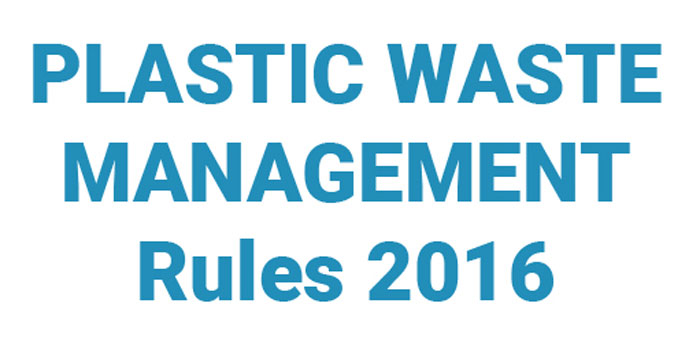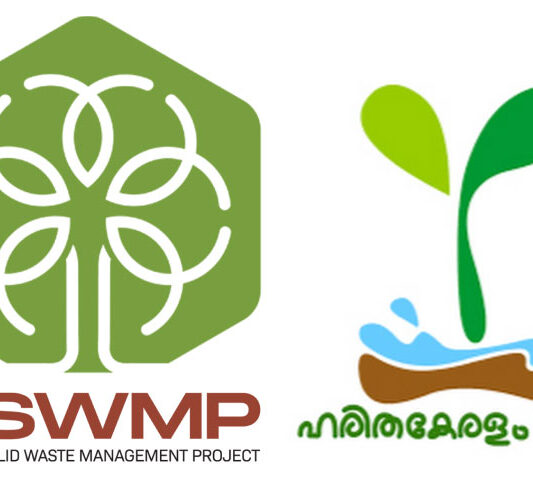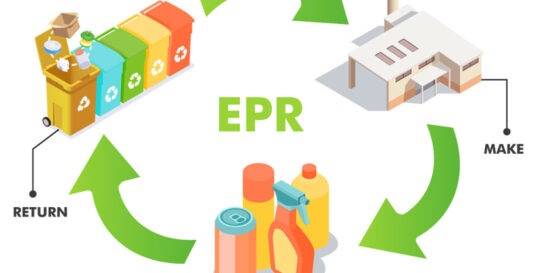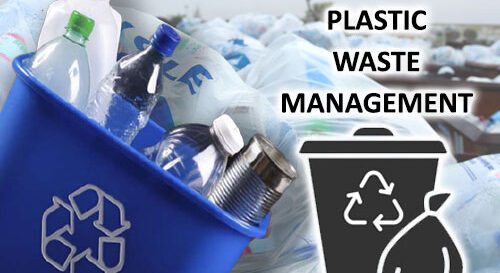Plastic waste management is a global concern and a grave issue to tackle. Read here to know more about the rules and regulations related to plastic waste management.
The Ministry of Environment, Forest, and Climate Change announced the Plastic Waste Management (Amendment) Rules, 2022, which notified the instructions on Extended Producer Responsibility (EPR) for plastic packaging.
The plastic waste management rules 2016 have been amended to speed up the elimination of single-use plastics and promote alternatives.
Plastic Waste Management Rules 2016:
The Plastic Waste Management Rules, 2016 aimed to:
- Increase the minimum thickness of plastic carry bags from 40 to 50 microns and stipulate minimum thickness of 50 microns for plastic sheets also to facilitate collection and recycle of plastic waste,
- Expand the jurisdiction of applicability from the municipal area to rural areas, because plastic has reached rural areas also;
- To bring in the responsibilities of producers and generators, both in the plastic waste management system and to introduce collect back system of plastic waste by the producers/brand owners, as per extended producers responsibility;
- To introduce a collection of plastic waste management fees through pre-registration of the producers, importers of plastic carry bags/multilayered packaging, and vendors selling the same for establishing the waste management system;
- To promote the use of plastic waste for road construction as per Indian Road Congress guidelines or energy recovery, or waste to oil, etc. for gainful utilization of waste and also address the waste disposal issue; to entrust more responsibility on waste generators, namely payment of user charge as prescribed by the local authority, collection and handing over of waste by the institutional generator, event organizers.
In addition, the expected outcome from the new rules include:
- Increasing the thickness of plastic carry bags from 40 to 50 microns and stipulation of 50-micron thickness for plastic sheets is likely to increase the cost by about 20 %. Hence, the tendency to provide free carry bags will come down and collection by the waste-pickers also increase to some extent.
- The producers, importers, and brand owners who introduce the plastic carry bags, multi-layered plastic sachet, or pouches, or packaging in the market within six months from the date of publication of these rules, need to establish a system for collecting back the plastic waste generated due to their products.
- Phasing out of manufacture and use of non-recyclable multilayered plastic.
- All institutional generators of plastic waste shall segregate and store the waste generated by them per the Solid Waste Management Rules, and hand over segregated wastes to authorized waste processing or disposal facilities or deposition centres, either on their own or through the authorized waste collection agency.
- The local bodies shall be responsible for setting up, operationalizing, and coordinating the waste management system and for performing associated functions.
- Retailers or street vendors shall not sell or provide commodities to consumers in carrying bags, plastic sheets, or multilayered packaging, which are not manufactured and labelled or marked, as prescribed under these rules.
- The shopkeepers and street vendors willing to provide plastic carry bags for dispensing any commodity shall register with the local body.
- The options on reuse of plastic in various applications namely, road construction, waste to oil, energy waste will enhance the recycling of plastic.
- The responsibility to provide land for establishing waste management facility has been made to the Department with the business allocation of land allotment in the State Government. This would eliminate the issue of getting land for the waste management facility.
The Ministry had initially notified the Recycled Plastic Manufacture and Usage Rules in 1999, which was mainly on the manufacturing and usage of plastic carry bags.
- It is specified that the minimum thickness of plastic bags should be 20 microns.
The Plastic Waste (Management and Handling) Rules, 2011 laid down certain conditions for manufacturing, stocking, sale, and use of plastic carry bags and sachets, which were required to be monitored and implemented by the State Pollution Control Boards/ Municipal Authorities.
It specified that the minimum thickness of plastic bags should be 40 microns. This was to facilitate its collection and recycling.
However, the implementation of these rules was not so effective because the ambit of these rules was limited to notified municipal areas whereas today, the plastic has reached our rural areas also.
There were no provisions on the responsibility of waste generators and did not address the promotion of conversion of waste to useful resources.
Though it provided for Extended Producers Responsibility for the establishment of the waste management system, pricing of carry-bags, etc. those were not exercised by the local authorities as it was simply left at the discretion of municipal authorities.






